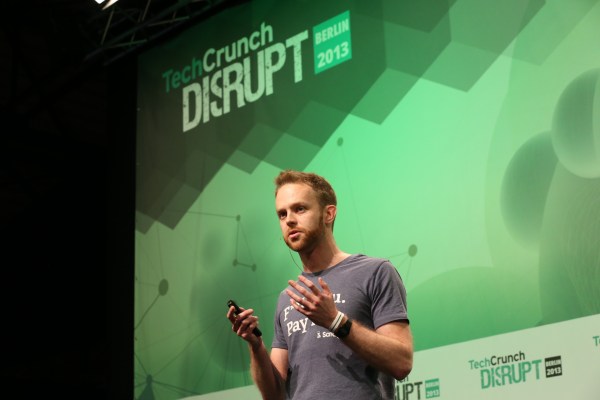Satago is a UK fintech startup with a simple premise — to help small businesses and freelancers get paid on time. They do that primarily by automated self report: Satago users link their Satago accounts with their in-house accounting software, and Satago uses anonymized data to create a database that shows how well (or how poorly) companies are keeping up with payments owed.
Satago also provides users with tools that help them automate the invoicing and payment process, helping them create automatic invoices, reminders and payment requests, as well as integrated credit reporting so users can see what payments are at risk.
The company launched at Disrupt Europe 2013 in Berlin as part of the Startup Battlefield. At that time, the company launched its platform where freelancers and SMBs could report anonymously when they got paid by particular clients.
“Battlefield was part of a pretty cool story for Satago,” company founder and CEO Steven Renwick told TechCrunch. “Really looking back it feels amazing we were there. We had barely got started. It’s only really now that I think our product is up to scratch.”
Immediately after Disrupt, Satago got accepted into Seedcamp Berlin, a program that both funds budding tech startups and connects them with hundreds of experts in marketing, product, sales, business development and the like, as well as several prominent VCs and angel investors in the region. It was during that time that the product began to expand to improve many aspects of cash flow in small business.
From those connections, and the ones they made at Disrupt, the company raised a $1 million seed round from a series of investors and set out on ways to make their platform even better.
Recently, they made their basic platform completely free to all users and introduced a new premium tool called Satago Invoice Finance that the company hopes will replace some of that lost revenue. Satago Invoice Finance is a program that fronts businesses the money owed when that money is due, and charges users a premium for that service.
For example, say a company owes a small business $5,000. After 30 days — when the invoice becomes due — Satago will pay the small business 85 percent of the invoice amount (so, $4,250). When the company eventually ponies up (with some help/urging from Satago), Satago pays the small business the remaining 15 percent, less a modest fee that accumulates daily.
And, if a company fails to pay or becomes insolvent, all payments through Invoice Finance are covered by bad debt protection so businesses keep at least some of the money owed. The service gives the small business piece of mind that they’re going to get paid on time for services rendered, and gives Satago some money for the service.
Whether or not the new business model will work for Satago in the long run remains to be seen, but the company is optimistic given the level of interest they’ve had in Invoice Finance thus far.
“We have been overwhelmed with the positive feedback and already have a good number of users signed up for early access [to Invoice Finance],” reads a recent announcement on the company’s page.
We’re thrilled to see a Battlefield alum doing so well after the conference. You can come see the next wave of great startups at TechCrunch Disrupt London, which takes place from December 7-8 at London’s beautiful Copper Box Arena.
Tickets to the show are still available, and you can secure your spot at the show on our ticketing page.
Our sponsors help make Disrupt happen. If you are interested in learning more about sponsorship opportunities, please contact our sponsorship team at sponsors@beta.techcrunch.com.
